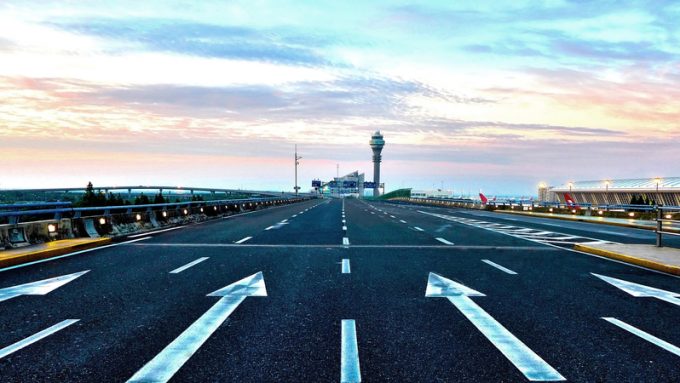Virgin Atlantic Cargo axes Shanghai route over cost concerns
Not even boundless volumes of ecommerce could save Virgin Atlantic’s Shanghai route, as higher costs ...
TFII: SOLID AS USUALMAERSK: WEAKENINGF: FALLING OFF A CLIFFAAPL: 'BOTTLENECK IN MAINLAND CHINA'AAPL: CHINA TRENDSDHL: GROWTH CAPEXR: ANOTHER SOLID DELIVERYMFT: HERE COMES THE FALLDSV: LOOK AT SCHENKER PERFORMANCEUPS: A WAVE OF DOWNGRADES DSV: BARGAIN BINKNX: EARNINGS OUTODFL: RISING AND FALLING AND THEN RISING
TFII: SOLID AS USUALMAERSK: WEAKENINGF: FALLING OFF A CLIFFAAPL: 'BOTTLENECK IN MAINLAND CHINA'AAPL: CHINA TRENDSDHL: GROWTH CAPEXR: ANOTHER SOLID DELIVERYMFT: HERE COMES THE FALLDSV: LOOK AT SCHENKER PERFORMANCEUPS: A WAVE OF DOWNGRADES DSV: BARGAIN BINKNX: EARNINGS OUTODFL: RISING AND FALLING AND THEN RISING

There are likely to be broader knock-on effects from the Ukrainian crisis for the haulage industry, warned pan-European air freight road feeder services (RFS) provider Wallenborn Transports.
However, it said it has yet to feel any negative impact on its business from the war in Ukraine.
“We don’t employ drivers in the countries directly concerned and we don’t operate there either,” the Luxembourg-based company’s commercial director, Jason Breakwell, told The Loadstar.
“However, I expect it will further deplete the overall driver pool, as many truck operators, especially in Poland and the Baltic states, employ drivers from Russia and Ukraine. One other potential impact on European road freight is that many automotive components are manufactured in Ukraine and supply disruption will affect production of trucks.”
Mr Breakwell added that the EU’s Mobility Package was another topical issue with which the European road haulage industry has to grapple.
“The latest elements [of the package] require drivers to return to their home countries after three weeks and trucks to return (mostly empty) to base every eight weeks. If all operators comply with the legislation, we estimate available truck capacity will be reduced by between 10% and 15%.
“The principal consequences will be thousands of empty long-distance trips every week to and from countries in central and eastern Europe at a time of record high diesel prices and reduced driver and truck productivity.”
He added: “I support the goals of better labour conditions and more facilities dedicated to the profession across Europe, but these recent measures don’t improve driver welfare. I hope the EC will realise the unsustainable impacts these elements of the mobility package will have on the road haulage industry and decide to defer or cancel them.”
Another issue of growing significance in the trucking industry is the continued hike in fuel prices, he said.
“The challenge over the past two weeks or so is that retail fuel costs have been exceptionally volatile, for example, jumping up and down by €0.30 or even €0.40 per litre in a few days. There’s normally a lag of a several weeks between changes in the barrel price and the pump price, but not recently.
“Diesel costs are typically 25% to 35% of an operator’s total costs, but diesel costs are more than 50% higher than a year ago. We all need to be vigilant to ensure prices or surcharges are adjusted to compensate. Our customers pay a monthly fuel surcharge which tracks the EU27 average cost of diesel. If the recent cost volatility is sustained, we’ll need to introduce a weekly surcharge.”
Turning to how the market for pan-European air freight at RFS has performed so far this year, Mr Breakwell noted: “Demand was strong in the first two months, an increase of approximately 15% on 2021 and up 30% on 2020, and the normal dip after the Chinese spring festival was shorter than usual this year.
“Volumes were lower in the first week of March, as air capacity was squeezed by sanctions and airspace restrictions, but demand is currently very high, and airlines and forwarders are scrambling for extra freighter and pax-freighter capacity to serve the APAC-Europe market. If the recent spike in energy prices is prolonged, demand will eventually be dampened.”
Comment on this article